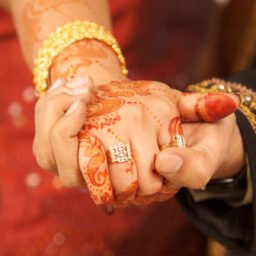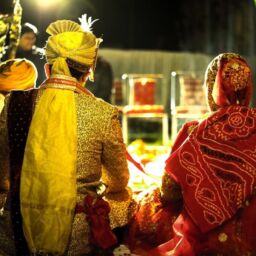INTRODUCTION
Illegitimacy comes from a Latin phrase that meaning “not according to the law.” Illegitimate offspring were viewed as no one’s property, but legitimate offspring were viewed as the father’s property. A nullius filius kid has no legal link with his or her parents. When a child is born to parents who aren’t married at the time of the children’s birth, it’s far called an illegitimate child. The child might nevertheless seem illegitimate even though the mother and father finally married.
The legitimacy of a person is determined by two factors:
- The link between the parents’ marriages
- This relationship’s legal status.
THE HISTORY
Illegitimate children formerly had no legal claim to their parents’ fortunes. Children born outside of marriage frequently have little social standing. An illegitimate child in mediaeval Europe, Britain, and America had maintenance rights but essentially no inheritance rights. Various countries have altered their law since the twentieth century to guarantee that illegitimate children are treated equally to legal children and are not discriminated against for no reason. Expectant parents were frequently anxious about getting married before their kid was born for the infant to be regarded genuine and have his or her inheritance rights protected. Illegitimate offspring have never had the same status as legitimate kids. Illegitimate offspring have long faced discrimination from society. These children were subjected to a great deal of prejudice in these countries, and they continue to be discriminated against in the majority of civilizations and faiths across the world.[1]
What factors contribute to illegitimacy?
- The married couple failed to follow the law, resulting in their marriage being declared null and invalid.
- The child’s parents were not married when the child was born but later married.
- The kid was born as a result of the mother’s sexual assault or that of a sex worker, and the father’s identity is unknown.
- The child is the result of an unfaithful relationship.
In the past, Hindu women were not allowed to own immovable property, and if they did, the property would not be allocated according to their wishes. Illegitimate children had no rights under the ancient law, but after Hindu personal laws were implemented, special codified laws were created to outline the limitations of the rights accorded to illegitimate offspring, which have since been expanded by various court rulings and modifications.
Moving directly to Christian personal laws, there aren’t any described norms and rules in India that furnish illegitimate youngsters born to Christian parents’ criminal rights. As a result, the 1869 Indian divorce law, which includes provisions for illegitimate children, has been examined, as has the reputation of validity under Hindu and Muslim non-public laws, both of which convey the impression that children born of invalid and voidable marriages have some validity.
As a man or woman, we have to recognise that every teen whether or not true has the privilege to get valid weather to develop up with adoration and friendship and because the regulation says one has to now no longer be rebuffed for the wrongdoing that they have got now no longer accomplished so have to people realize that being a child conceived out of any marriage apart from a great one isn’t always their misstep the general public authority have to likewise be cautious and deliver modifications with the help of governing frame to enhance the scenario with illegitimate children withinside the country.
As a result, more liberal regulations and reforms toward a legitimate child are needed so that everyone may welcome them as any other child.[2]
Hence, children that fall within the category of illegitimate children in Hindu law can be summed up as follows
- As a result of a void marriage, children are born;
- Children born as a result of voidable/annulled marriage;
- Children born as a result of a shady relationship;
- Concubinage has resulted in the birth of children
- Children from a marriage that is invalid due to a lack of suitable rituals.
In the current situation, an illegitimate child’s rights are protected.
UPKEEP AND MAINTENANCE
Under the Hindu Adoptions and Maintenance Act of 1956, a Hindu is expected to support his or her illegitimate offspring throughout their lives. Illegitimate children are now the responsibility of both the father and the mother. Like an illegitimate son, an illegitimate daughter has the right to support her father and mother.
The right to be protected, however, is confined to the period of minority. An illegitimate child no longer has the right to be supported by his or her parents after they reach the age of majority. If a child has changed to another faith after ceasing to be a Hindu, he or she will not be entitled to support.
INHERITANCE
Since the Hindu Succession Act of 1956, an illegitimate child of a Shudra is not allowed to inherit his or her father’s property. Previously, if a Shudra’s illegitimate son was a dasiputra, he was eligible to accede to his father. He can’t now because of the Act.
JOINT FAMILY PROPERTY AND PARTITION
Prior to the Hindu Succession Act, an illegitimate son succeeded to his father’s estate as a coparcener with his father’s legal son, and following his father’s death, he was permitted to initiate a partition against the legitimate son. He cannot succeed his father under the mentioned Act because he is not related to him by legitimate kinship.[3]
GUARDIANSHIP
The mother is seen as the natural guardian of the kid. Currently, if both guardians of an ill-conceived child are Hindus, Buddhists, Jains, or Sikhs by religion, or if one of the guardians is a Hindu, Buddhist, Jain, or Sikh by religion, and the child is raised as an individual from the clan, local area, gathering, or family to which such parent has a place or had a place, then the Hindu Minority and a Sikh Minority are created.[4]
CASE LAW
The Supreme Court of India decided in Revanasiddappa v. Mallikarjun[5] that: the fundamental values enshrined in the Preamble of our Constitution, which emphasises the notion of equality of position and opportunity, as well as individual dignity. The Court must remember that, though the parents’ relationship may be illegal, the birth of a child in such a relationship must be viewed separately from the parents’ relationship. A child born from such a union is innocent and has all of the same rights as children born from legal unions.
CONCLUSION
The Indian society is a metaphysical civilization, and as a result, it is undergoing metamorphosis, with two major divisions of individuals holding opposing beliefs. One of the groups adheres to Hindu religious orthodoxy, in which having an illegitimate kid is frowned upon, and being one is even worse.
People who are reasonable and liberal in their perspective and do not perceive illegitimacy to be a stigma make up the other segment in society. They blame the irresponsible marriage rather than the illegitimate child for his or her existence. As time and circumstances dictate, laws in society are also altered.
It is important to remember that, notwithstanding international and national conventions, charters, and regulations, an illegitimate child is nevertheless subjected to severe socioeconomic deprivation. As a result, it is primarily a social problem, with a solution to be sought in a socially structured society in which humanism plays a central role. Changes in social attitudes are required.
The unrestricted burden imposed on the mother of illegitimate children is a flagrant violation of illegitimate children’s rights. Two people are equally responsible for the birth of a kid, and they are both equally responsible for the kid’s care and upbringing. However, in most faiths, and even in Indian law, the mother of the child bears an unjust and unilateral burden, particularly in terms of inheritance and guardianship rights given on illegitimate offspring.
Author(s) Name: Vatsala Vatsa (Student, NMIMS, Bangalore)
References:
[1] Sandra M. T. Magalang, Legitimizing Illegitimacy: Revisiting Illegitimacy in the Philippines and Arguing for Declassification of Illegitimate Children as a Statutory Class, Vol. 88 Phil LJ, (2014).
[2] Shubhangi Agrawal, A Study of Illegitimacy: As A Concept, Legal Service India, http://www.legalserviceindia.com/legal/article-5511-a-study-of-illegitimacy-as-a-concept.html (last accessed June 9, 2021).
[3] Syed Afridi and Arul Kannappan, A critical analysis of property rights of illegitimate children, 120 (5), International Journal of Pure and Applied Mathematics, 3039, 2018.
[4] Kunjal Arora, Illegitimacy under Hindu Law, Lawctopus, https://www.lawctopus.com/academike/illegitimacy-hindu-law, (last accessed June 9, 2021).
[5] Revanasiddappa v. Mallikarjun, (2011) 11 SCC 1.















